China's helplessness in the face of North Korea's 'time bomb'
China acknowledges the threat from the North Korean crisis, but has no effective measures to prevent it.
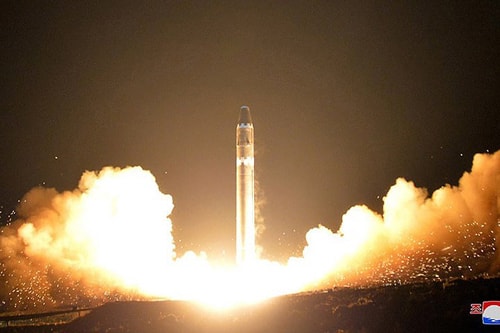 |
A North Korean intercontinental ballistic missile launch. Photo: KCNA. |
Professor Shi Yinhong, an adviser to China's State Council, warned on December 16 that "North Korea is a time bomb" and said that Beijing could only hope to defuse it by delaying. A former senior Chinese military commander later also said that the country needed to "mobilize defensive measures" to prevent war from breaking out on the Korean peninsula at any time, according to SCMP.
The statements came just days after the Jilin Daily, the newspaper of China's border province with North Korea, published an article instructing people on how to prevent the harmful effects of a nuclear attack, along with illustrations of how to take cover and avoid radiation exposure.
Nikkei commentator Katsuji Nakazawa said the above statements by Chinese scholars and former military officials reflect the reality that Beijing has almost no cards left to control its ally Pyongyang and is ready for the worst situation on the Korean peninsula.
The war of words between US President Donald Trump and North Korean leader Kim Jong-un following Pyongyang’s series of missile launches and nuclear tests has put enormous pressure on Beijing to resolve the crisis. But recent developments show that China no longer seems to have the initiative to control North Korea or prevent a nuclear disaster scenario right next door.
The New Zealand Herald quoted international analysts as saying that China can no longer convince its neighbor North Korea to end its missile and nuclear programs. From the position of an influential "patron state", Beijing now has to admit that Pyongyang has gone beyond its control.
Relations between China and North Korea were once described as a “friendship forged in blood,” referring to Beijing’s sending of volunteer troops to aid Pyongyang during the 1950-53 war. However, since Kim Jong-un came to power, that relationship has deteriorated.
The last time a senior Chinese Politburo Standing Committee official visited North Korea was in October 2015, when Liu Yunshan traveled to Pyongyang to meet with Kim. Since then, Beijing has repeatedly miscalculated Pyongyang’s intentions and even been “humiliated” by its missile and nuclear tests.
On May 14, North Korea launched a ballistic missile just hours before an international conference on the Belt and Road Initiative was to begin in Beijing. On September 3, Pyongyang conducted a nuclear test as Xi was about to address a BRICS summit in Fujian. In November, North Korea launched another Hwasong-15 ballistic missile after Xi hosted Trump in Beijing and pledged cooperation to rein in Pyongyang.
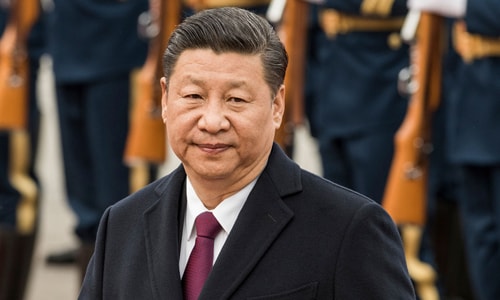 |
Chinese President Xi Jinping. Photo: Reuters. |
Since then, China has seemingly lost patience with North Korea, as demonstrated by Vice Premier Wang Yang's statement on December 1: "North Korea used to be a country with close friendship with China. But that is no longer the case. Bilateral relations have become increasingly confrontational."
This is the first time a member of China's Politburo Standing Committee has publicly described relations with North Korea as "confrontational", although many senior Chinese officials have previously acknowledged the worsening relationship between the two countries.
"China cannot and will not prevent a US military strike on North Korea," a researcher at a Chinese security think tank commented on China-North Korea relations.
Impotent
On December 4, Chinese Foreign Minister Wang Yi also publicly expressed his anger when asked about the latest developments related to the North Korea crisis. "After two months of relative peace, tensions on the Korean Peninsula have flared up again," he said, regretting that both North Korea and the United States had failed to seize the opportunity for dialogue offered by China.
China has proposed a “mutual freeze” proposal, in which North Korea would halt nuclear and missile tests in exchange for the US and South Korea ending large-scale joint military exercises. Mr. Wang’s comments indicate that this proposal has been ignored by both the US and North Korea.
Many analysts believe that China's "mutual halt" proposal is not feasible in practice. While the US-South Korea joint military exercises are recognized by the international community as legal, North Korea's nuclear and missile tests have been criticized by the United Nations.
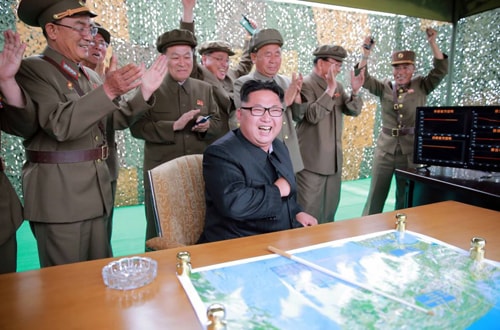 |
North Korean leader Kim Jong-un reacts after a missile launch. Photo: KCNA. |
According to Nakazawa, the proposal was merely a “diplomatic move” by China to counter criticism that Beijing was doing nothing to resolve the crisis. But with North Korea testing the Hwasong-15 missile and showing signs of preparing for its seventh nuclear test, China knew the threat had risen to a new level.
In the past, China could have used its diplomatic clout to somehow end the dangerous nuclear standoff between the United States and North Korea. But that time is over, and Beijing now has no viable alternative.
"China believes that the US can attack North Korea at any time," a China-North Korea relations expert commented on the statements of Wang Yang and Wang Yi. "The statements by these two senior officials are an act of damage control and a message to the people: Prepare for the worst."
According to VNE
| RELATED NEWS |
|---|



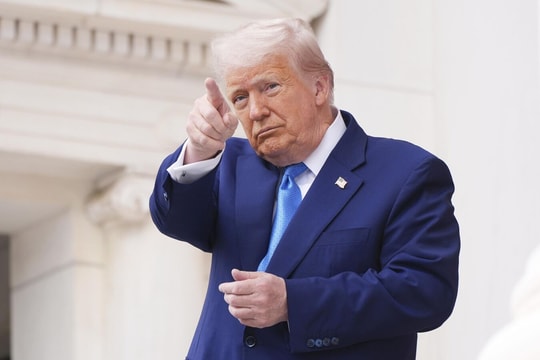

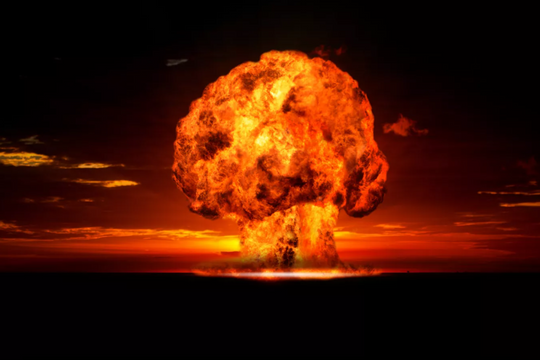
.jpg)

